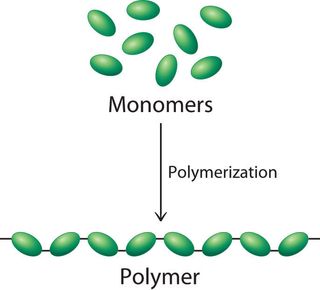Polymers in Construction: Stronger, Lighter, and More Sturdy
Polymers in Construction: Stronger, Lighter, and More Sturdy
Blog Article
Checking Out the Varied Applications and Benefits of Polymers in Different Industries
Polymers, with their varied variety of properties and performances, have ended up being vital in numerous sectors, each gaining one-of-a-kind advantages from their application. Polymers. From boosting safety and security and efficiency in the vehicle market to reinventing medical gadgets in the healthcare industry, polymers play a pivotal duty. Their green nature is changing the landscape of sustainability methods. As we delve right into the midsts of polymers in electronics, we uncover cutting-edge technologies, while their architectural integrity changes the realm of construction and framework. The prevalent influence of polymers throughout markets is a testament to their convenience and versatility, shaping the future of plenty of markets.
Automotive Sector Applications
Polymers play a crucial function in boosting the performance and longevity of different parts within the automotive market. These versatile materials are thoroughly utilized in the production of different parts, varying from indoor components to under-the-hood applications. One noticeable usage of polymers in the automobile sector is in the production of light-weight parts. By replacing conventional steel components with polymer-based alternatives, automobiles can attain improved fuel effectiveness without compromising on stamina or safety and security.

Health Care Sector Benefits
In numerous medical care applications, the benefits of making use of polymers are extensively identified for their varied array of beneficial residential or commercial properties. Polymers play a vital duty in the medical care sector as a result of their adaptability, biocompatibility, and cost-effectiveness. Among the key benefits of polymers in health care is their capability to be tailored to particular requirements, such as flexibility, durability, and biodegradability, making them ideal for a large range of clinical applications.
Polymer-based products are extensively used in medical tools, such as catheters, implants, prosthetics, and medicine shipment systems, because of their biocompatibility and ability to mimic all-natural cells. These materials can lower the danger of allergies or beings rejected, enhancing patient safety and end results. Furthermore, polymers are lightweight, making them ideal for wearable clinical devices and ensuring person convenience.
Furthermore, polymers make it possible for the development of cutting-edge treatment techniques, such as hydrogels for cells engineering and nanocomposites for targeted medicine shipment. Their convenience of processing and sanitation makes them essential for keeping high standards of hygiene in medical care settings. Generally, the diverse advantages of polymers add significantly to improvements in medical innovation and patient care.
Ecological Advantages of Polymers

In addition, polymers can contribute to energy cost savings because of their light-weight nature. In sectors such as transport, lightweight polymer materials can help decrease gas index usage and greenhouse gas exhausts. Additionally, polymers can allow the advancement of energy-efficient items such as insulation materials that boost power preservation in structures.
Furthermore, polymers play an important role in lowering water air pollution. The use of polymer-based filtration systems can effectively remove toxins and impurities from wastewater, securing water resources and communities. Overall, the environmental advantages of polymers make them valuable possessions in promoting sustainability and green methods across various sectors.
Polymers in Electronics and Technology
Considering the raising need for innovative and lasting options in contemporary industries, the assimilation of sophisticated polymer technologies in the world of electronics and technology has actually become a pivotal from this source method for driving effectiveness and performance. Polymers have actually transformed the electronic devices market by enabling the manufacturing of lighter, much more adaptable, and long lasting electronic tools. From mobile phones to clinical gadgets, polymers play an essential duty in enhancing item design and functionality.
One substantial advantage of polymers in electronic devices is their insulating residential or commercial properties, which aid safeguard fragile electronic elements from environmental aspects and electrical interference. In addition, polymers are important in the growth of flexible screens, wearable technology, and published electronic devices, providing limitless opportunities for creating wise and interconnected tools.
Furthermore, making use of polymers in electronic product packaging has resulted in improvements in miniaturization and thermal management, improving the general efficiency and integrity of digital systems. As modern technology remains to progress, the convenience and adaptability of polymers will undoubtedly drive even more technology in the electronic devices sector, shaping the future of modern technology.
Role of Polymers in Construction and Infrastructure
The assimilation of innovative polymer products in building and construction and infrastructure projects has revolutionized the way structures are designed and built in modern-day times. Polymers provide many advantages in the building industry due to their flexibility, sturdiness, and cost-effectiveness. One crucial function of polymers in building is their use in coatings and sealers, giving defense versus environmental factors such as moisture, UV radiation, and deterioration. In addition, polymers are used in the manufacturing of light-weight and high-strength composite products, improving the structural honesty of structures while decreasing overall weight.
Moreover, polymers play a crucial function in sustainable building and construction methods by enabling the growth of energy-efficient frameworks. Protecting materials made from polymers help manage interior temperatures, reducing the demand for home heating and cooling systems and inevitably reducing power usage. Additionally, using polymer-based compounds in infrastructure tasks such as bridges and roadways enhances their long life and decreases upkeep costs. Overall, the consolidation of polymers in construction and infrastructure displays their significant effect on modern-day engineering methods.
Conclusion
In final thought, polymers play an essential role in numerous markets such as automotive, health care, environmental, electronics, and building. Their flexible homes make them useful in developing cutting-edge solutions and products. From boosting gas effectiveness in cars to enhancing medical gadgets, polymers offer countless benefits. Furthermore, their influence on reducing waste and promoting sustainability highlights their value in modern-day applications. The widespread usage of polymers demonstrates their considerable payment to advancing modern technology and boosting lifestyle.
Report this page